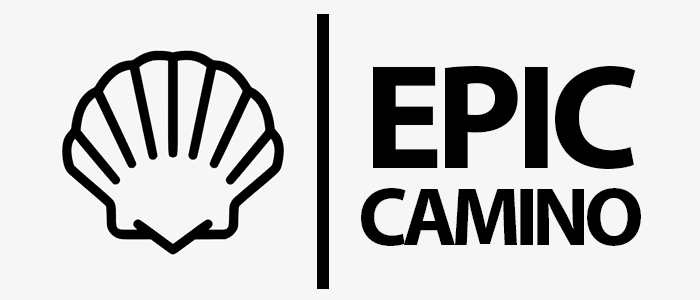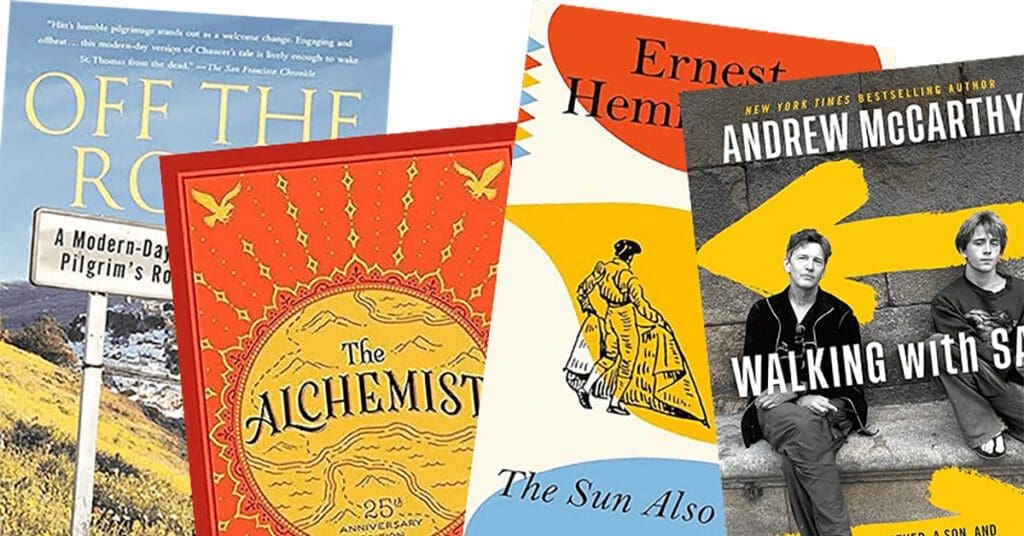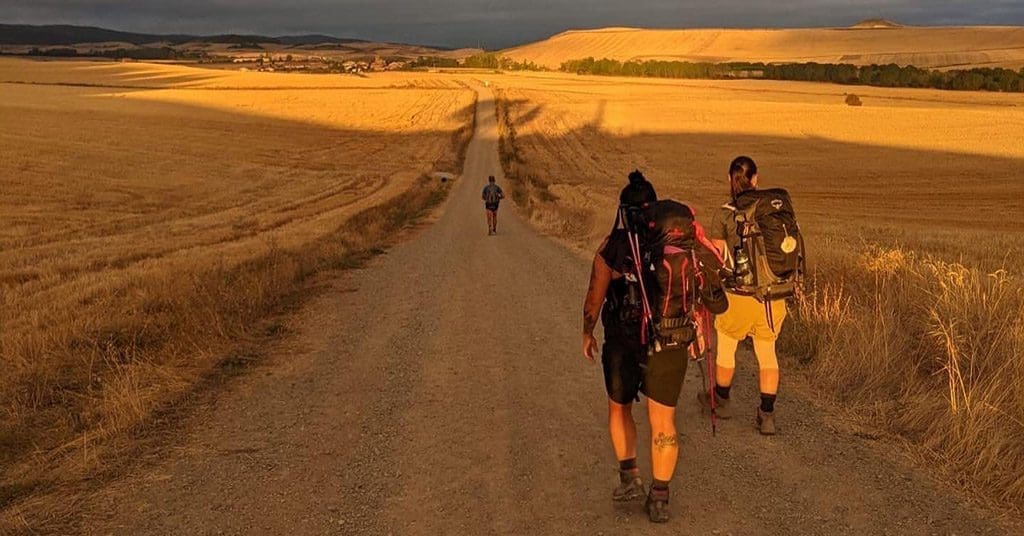10 Books I recommend
you read before walking the Camino de Santiago
Planning to walk the Camino de Santiago? Here are 10 fantastic books I’ve read over the years that I think you’ll love too. Hopefully they will get you super excited for your Camino adventure! The list is a bit of an eclectic mix—there are inspiring travel memoirs from pilgrims who’ve walked the Camino, books about the joys and challenges of hiking and walking in general, and books that explore the spirit, culture, and history of Spain. Happy reading! And, if you’ve got any book recommendations, drop them in the comments—I’d love to hear them. 😊
So let’s get started.
by Laurie Lee
I first read this book at the age of 15, and it left an indelible mark on me. Laurie Lee’s memoir recounts his journey by foot from his quiet village in rural England to the coastal town of Southampton, onward to London, and finally across Spain. Set in the 1930s, just before the Spanish Civil War, it paints an evocative portrait of a simpler, older Spain—both beautiful and haunting.
This book introduced me to the vagabond life, carrying all your provisions on your back and exploring the world on foot. and I’ve been enthralled by this romantic and adventurous way of living ever since. Lee’s descriptions of tramping across the Spanish countryside, violin in hand, exchanging music for food and shelter, and meeting fascinating characters, have inspired my own love for simple, unencumbered travel.
Lee’s writing is part prose, part poetry, and utterly enchanting. This isn’t a “page-turner” in the traditional sense; instead, it’s what I’d call a “page-lingerer.” Each page invites you to soak in the rich, lyrical language, immersing yourself in the rugged landscapes and vibrant culture of pre-war Spain. The book captures the magic of remote Spanish villages, the kindness of strangers, and the creeping shadows of a country on the brink of civil war.
This is the only book I own a first edition of. A few years ago, I treated myself to one, and it’s been a treasure ever since. I keep it on my desk, and when work becomes stressful or overwhelming as it sometimes does, I pick it up, open it to a random page, and let myself drift into Laurie Lee’s world. It’s like stepping into a time machine, revisiting a bygone era, reconnecting with the charm of a simpler life, and reigniting that spark for adventure.

2. Off the Road
by Jack Hitt
The first Camino memoir on my list is Off the Road, and I really enjoyed this one. Jack a journalist from Charleston SC, sets off on his Camino in the early 1990s, during the early days of the modern rediscovery of the trail. If you notice similarities between this book and Martin Sheen’s The Way, it’s no coincidence—Off the Road was one of the inspirations for the film.
I found the book laugh-out-loud funny at times, especially as Jack describes some of the quirky and colourful characters he meets along the way, from the Flemish film crew, a drunken gypsy, a strict Belgian air force officer, a man who speaks no languages, a one-legged pilgrim, and a Welsh family travelling with a mule.
The book also delves into the history and culture of the Camino, with fascinating stories about Roland, the Basques, and the Knights Templar.
I guess the Camino has changed in the 30 years since Jack wrote his book. There are definitely more people on the trail now, and you won’t have to lug film rolls in your backpack across Spain these days. But I think you’ll be glad to hear that “life off the road” hasn’t changed too much—the camaraderie and magic of the journey are still very much alive.

by Paulo Coehlho
Next up is The Alchemist – one of the most widely sold books in history, I checked it up when writing this blog and see it is sitting at No. 3 on the all-time bestseller list, right between Dickens’ A Tale of Two Cities and J.K. Rowling’s Philosopher’s Stone.
This book is a parable about following your dreams. It tells the story of Santiago, a young shepherd from Spain who embarks on a journey to Egypt in search of a treasure he saw in a dream. Along the way, he learns to listen to “the signs,” encounters fascinating characters like kings and alchemists, and discovers the beauty and wisdom of the world. By the end, Santiago realizes that the true treasure isn’t just what he was searching for—it’s the journey itself, the lessons learned, and the self-discovery along the way.
I’ll admit, books like this aren’t usually my thing. I struggled to finish Paulo Coelho’s first book The Pilgrimage (which is actually about walking the Camino), I found it to be a bit too mystical and fantastical for me, but The Alchemist was different. I first kind of resisted the book, but when I let myself become fully immersed, surrendering to the story, I was rewarded with an unexpectedly profound experience.
This book isn’t for everyone—it definitely divides readers—but if you’re open to it, it’s an inspiring and thought-provoking read.

4. Wild
by Cheryl Strayed
Wild by Cheryl Strayed is a beautifully descriptive story about loss, pain, nearly giving up, and pushing on. It recounts Cherly’s unforgettable hike along the Pacific Crest Trail (PCT) in the early 1990s and captures the raw, transformative power of taking on a monumental challenge.
Wild pulls you in so completely that I felt like I was right there beside Cheryl—my pack impossibly heavy, my feet bleeding and sore, filthy, hungry, and lonely. I couldn’t believe she kept going, and yet I knew I would have been crushed if she hadn’t. Her audacity and courage left me absolutely blown away.
This book made me laugh and cry, I hid behind the sofa in horror at Cheryl’s struggles, and I cheered her on every step of the way. Most of all, I felt an overwhelming sense of pride as she pushed herself beyond her limits.
Wild isn’t just my favourite book about hiking—it’s one of my favourite books of all time.
PS – Now, the Camino de Santiago isn’t a true wilderness hike like the PCT. You won’t be hiding from bears, traversing glaciers, or going weeks carrying all your food and supplies, but it does share the spirit of the journey, that sense of achievement, the bonds formed with a wonderfully eclectic group of people, and the way both strip life down to its essence, leaving you profoundly changed.

by Bradley Chemside
The next book on my list is another Camino memoir: The Only Way is West by Bradley Chermside. This hilariously entertaining account follows Brad, a cheeky chappy young Englishman, as he walks the Camino de Santiago, not entirely sure where he’s headed in life. Partly inspired by a desire to meet a girl and partly pulled along by fate, his journey is full of charm, wit, and unexpected moments.
From the very first page, I was hooked—I couldn’t put it down. Brad’s writing style is effortlessly funny, and his vivid descriptions and sharp observations bring the people he meets and the experiences he shares to life. Every page is a delight, and his humorous take on the ups and downs of the Camino had me laughing out loud more times than I can count.
It’s a fast-paced, inspiring romp of a book with an infectious joy that runs through every chapter. If you’re looking for a lighthearted yet heartwarming read about the Camino, this one is a must. I just wish he wrote a sequel.

6. Vagabond
by Mark Eveleigh
The next book on my list is the recently published Vagabond: Travels in Spain by Mark Eveleigh. I stumbled across it by accident while searching to rebuy Rolf Potts’ Vagabonding—somehow, I’d lost my first copy. When I realized Eveleigh’s book was about a long-distance hike in Spain, I couldn’t resist adding it to my ever-growing obsessive collection of hiking and travel memoirs set on the Camino.
Inspired by a nomadic “vagabundo” he met decades ago, Mark sets out to escape the fast pace of modern life and embarks on a solo 1,225 km hike across the Iberian Peninsula from the most southern tip to the most southern tip. Starting in Gibraltar and finishing at Estaca de Bares, he carries just a backpack and a hammock.
The journey takes him through sleepy siesta-hour plazas, shady cork forests, and shimmering heat-soaked plains. The long, dusty days are balanced by his encounters with small villages and rural communities. Above all, Mark’s trek is shaped by the kindness of strangers, the sharing of stories, and the freedom of life on the open road.
Set in some of Spain’s least-visited regions, including the fascinating Extremadura, Vagabond is a moving homage to the disappearing lifestyle of the vagabundo. It’s also a celebration of rural Spain, its forgotten communities, and the beauty of slowing down to truly connect—with others, with the land, and with yourself.
The Camino Frances makes a small but memorable appearance, as Mark’s path intersects with the Camino between Astorga and Ponferrada. As Sir Randulph Fiennes says, “Classic travel writing at its finest”.

by Beth Jusino
So it is time for another Camino memoir and this time it is Walking to the end of the world, a thousand miles on the Camino Santiago by Bett Jusino.
Bett a book editor from Seattle heads off on the Camino, with her husband Eric, in an attempt to escape work, endless meetings and 24/7 screen time. Bett had no intention of writing a book when she embarked on her journey, but I am glad she did.
Bett and Eric’s journey starts in the cathedral city of Le Puy in southern France and she has nearly 4 weeks of hiking under her belt, by the time she even reaches the traditional start of the French route in St John de Pied.
Betts’s book is filled with humour and heart, as shares the ups and downs of life on the Camino: snoring dorms, roadside songs, lively café chats, and the unforgettable people she meets along the way.
Her storytelling captures the magic and madness of the pilgrimage, offering a funny and inspiring glimpse into this life-changing journey.

by Giles Tremlett
I decided to add a history book on Spain to my reading list and, after going back and forth on a few from my collection, I landed on Ghosts of Spain by Giles Tremlett. This book primarily focuses on post-Franco Spain and the country’s so-called policy of “forgetfulness,” the idea that the events of General Franco’s rule should remain unexplored. Tremlett, a British journalist living in Spain, sets out to uncover why.
Ghosts of Spain takes readers on a fascinating journey, beginning with Tremlett’s exploration of questions like who caused the Spanish Civil War, who fought in it, and why. These investigations lead him to examine topics such as the roots of Basque terrorism, the Catalan resentment toward Madrid, and even the 2004 Madrid bombings. Through these “ghosts,” Tremlett offers insights into the modern Spanish identity, including their mistrust of authority, their education system, and their evolving views on feminism.
It’s an excellent read, especially for anyone looking to understand Spain’s regions, history, and people. However, the book was written in 2006, and some parts are starting to feel a bit dated. I’d love to see Tremlett revisit this work to include the many new stories that have emerged since then—Catalonia’s independence movement, the rise of VOX, the controversies surrounding Spanish football, like that infamous kiss from the football chief, and so much more.

by Andrew McCarthy
Walking with Sam is Andrew McCarthy’s heartfelt memoir about walking the Camino de Santiago with his son, Sam. Andrew, one of the iconic “Brat Pack” actors of the 1980s (Pretty in Pink, Weekend at Bernie’s, St. Elmo’s Fire), first walked the Camino in his 30s at a time when he was struggling a little with his fame and finding purpose in his life. The Camino was a life-changing journey for Andrew and he returns 20 years later with his son, to relive the experience.
The book is a mix of a father-and-son bonding story and a coming-of-age journey for Sam, and I really enjoyed it. That said, two small things, not really gripes, just observations. First, Andrew and his son mostly stay in small hotels in the evenings, which I think loses a bit of the Camino’s spirit—the camaraderie, the shared stories, and, as we’d say in Ireland, the “craic.” Second, I was curious about how people reacted to Andrew along the way. He’s a famous actor after all and definitely a heartthrob for a lot of women of a certain vintage, so it must have been interesting when people recognized him. I feel like he could’ve explored that more—or maybe he’s just over the whole fame thing at this point!

by Ernest Hemingway
If a Hemingway novel is on your bucket list (and let’s be honest, if you’re planning the Camino, you’re probably a bucket-list kind of person), The Sun Also Rises is a must-read. A DAMN FINE STORY.
Set in the 1920s, this hedonistic, bittersweet tale follows a group of young expatriates as they drift through Paris and Spain in search of meaning—or at least distraction. At its heart is Jake Barnes, a World War I veteran grappling with physical and emotional wounds, whose journey takes him from the glittering cafes of Paris to the fiery intensity of the Pamplona bull runs.
Hemingway’s sparse, evocative prose captures the restlessness of a post-war generation and the thrill of adventure against the backdrop of Europe’s vibrant, often chaotic, landscape.
Along the way, they visit places familiar to Camino pilgrims, including the monastery at Roncesvalles, the village of Burguete where Jake goes fishing, and the vibrant streets of Pamplona for the famous bull runs.
I am always fascinated by how fresh it still feels today. Swap out telegrams for WhatsApp, and you’ll see that life, with its friendships, heartaches, and escapes, hasn’t really changed that much.
P.S. If you’re more into listening to books, there’s an amazing audiobook version narrated by the late William Hurt.






Thanks, some great reads here. Really liked Andrew McCarthys book.
Fantastic list! I’ve never read The Alchemist as like you thought it was too whimsical and mystical but I will now give it a go.